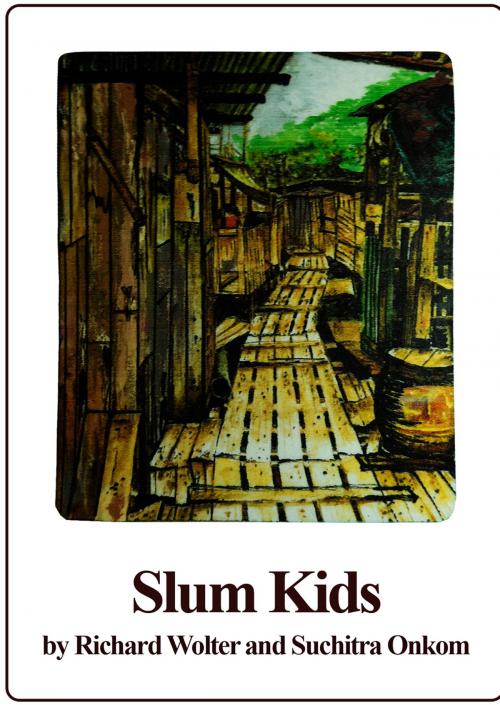| Author: | Richard Wolter, Suchitra Onkom | ISBN: | 9786162222092 |
| Publisher: | booksmango | Publication: | March 21, 2014 |
| Imprint: | Language: | English |
| Author: | Richard Wolter, Suchitra Onkom |
| ISBN: | 9786162222092 |
| Publisher: | booksmango |
| Publication: | March 21, 2014 |
| Imprint: | |
| Language: | English |
Enjoying the easy to read writing style, we exploit the daily life of some slum dwelling youngsters, which had to skip school to support their families. We become part of their daily struggle to make a living in the atrocious traffic and polluted streets of Bangkok, among them, Ngop and Long, the main figures. Leafing through the first chapter, we already sense the quirk of destiny that lingers all the way through the story. Walking on the wooden footpath, bordered by makeshift homes on stilts, we can smell the biting whiff of the swamp beneath, and little by little, but in an increasing tempo, we become part of the scenery, and we share all the unexpected events, both comical and heartbreaking. But what is more, in the face of the thorny conditions the actors have to put up with, we perceive the gist of commonsensical kindness, which is native to the Thai people.Concerning Thai society, we observe that the fine line regarding one's family background, connections, status and money play an important role in Thailand. Money opens doors, often bypassing written laws and what Westerners call morality. Even if Thais keenly adhere to Buddhism, they sometimes tend to overlook the teachings of the Buddha as next to Him; money remains a much-adored fetish, while the poor pass on the fate of poverty from generation to generation with little chance to escape that trap. The quintessence of the story, regardless of the happenings and their consequences, bases on the conditions on which life is built.
Enjoying the easy to read writing style, we exploit the daily life of some slum dwelling youngsters, which had to skip school to support their families. We become part of their daily struggle to make a living in the atrocious traffic and polluted streets of Bangkok, among them, Ngop and Long, the main figures. Leafing through the first chapter, we already sense the quirk of destiny that lingers all the way through the story. Walking on the wooden footpath, bordered by makeshift homes on stilts, we can smell the biting whiff of the swamp beneath, and little by little, but in an increasing tempo, we become part of the scenery, and we share all the unexpected events, both comical and heartbreaking. But what is more, in the face of the thorny conditions the actors have to put up with, we perceive the gist of commonsensical kindness, which is native to the Thai people.Concerning Thai society, we observe that the fine line regarding one's family background, connections, status and money play an important role in Thailand. Money opens doors, often bypassing written laws and what Westerners call morality. Even if Thais keenly adhere to Buddhism, they sometimes tend to overlook the teachings of the Buddha as next to Him; money remains a much-adored fetish, while the poor pass on the fate of poverty from generation to generation with little chance to escape that trap. The quintessence of the story, regardless of the happenings and their consequences, bases on the conditions on which life is built.















